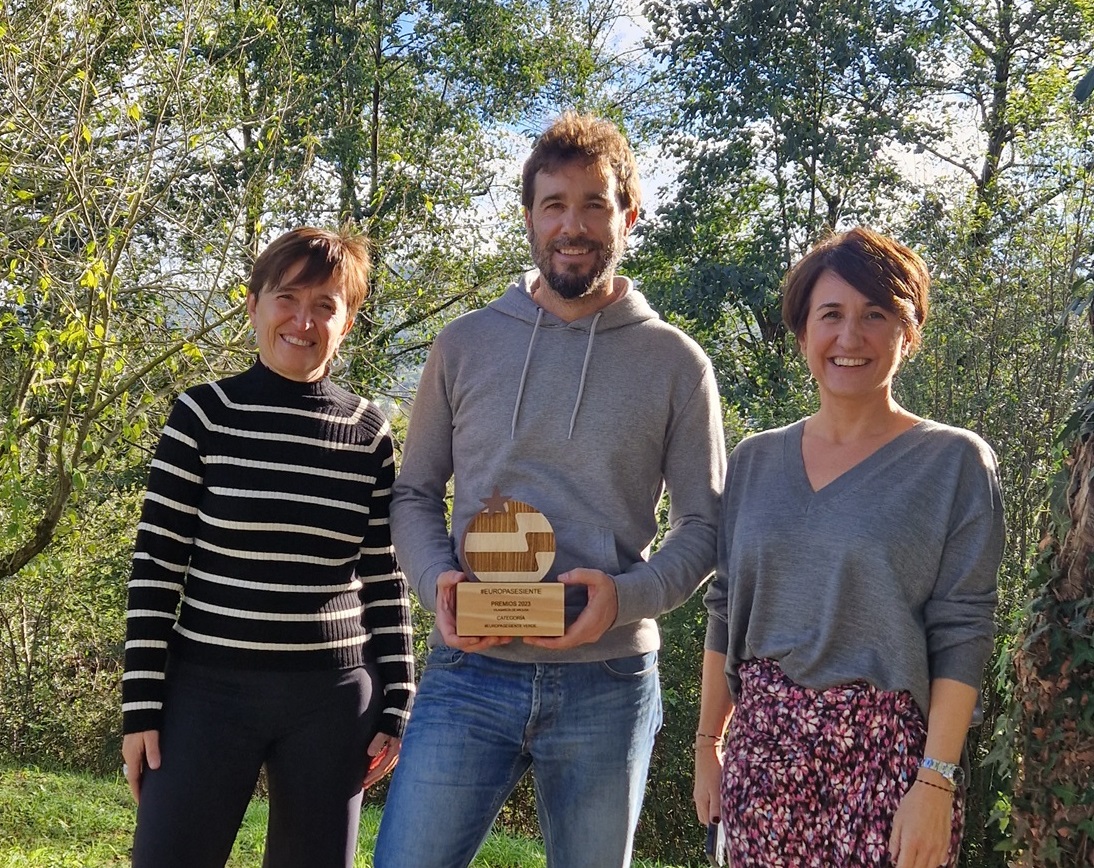NEW
VITISAD project, led by NEIKER, receives the ‘EuropaSeSiente’ award for its viticultural practices against climate change
13 November 2023During the research, it has been demonstrated that the conservation of genetic diversity of the vine, the delay of the pruning date or the use of plant covers are some practices that can contribute to adapting vineyards to climate change
VITISAD project, led by NEIKER, has received the ‘EuropaSeSiente’ award for its vine-growing practices for adapting to climate change. This award was presented as part of the competition organised by the Directorate General of European Funds of the Ministry of Finance and Public Function with the aim of giving visibility and increasing public awareness of the results and added value of the support of European funds in Spain.
On behalf of NEIKER, the trophy was received by the team of researchers who have led the project, Ana Aizpurua and Roberto Pérez Parmo, together with the head of Technology and Innovation at the technology centre, Olatz Unamunzaga, who said that “this award recognises, in addition to the excellence of the project and its results, the work that we at NEIKER have been doing in the field of viticulture for some time now, with the aim of transferring real solutions to the sector to its challenges and problems”.
VITISAD is a POCTEFA cross-border cooperation project involving NEIKER, the Directorate-General for Rural Development of the Government of Navarre, the Directorate-General for Agriculture and Livestock of the Government of La Rioja, La Chambre d’Agriculture des Pyrénées-Atlantiques and the Institute Français de la Vigne et du Vin. This cross-border cooperation was based on experimentation, joint evaluation and exchange of experience on five practices corresponding to different strategies for adapting to climate change in vineyards in the border territory between France and Spain: optimisation of irrigation water, use of plant cover, reduction of bunch temperature, control of vine ripening and conservation of the genetic variety of the grape.
During the research, it has been demonstrated that the conservation of the genetic diversity of the vine, the delay of the pruning date or the use of plant covers are some practices that can contribute to the adaptation of vineyards to climate change.
With a budget of 657,587 euros, the VITISAD project has been 65% co-financed by the European Regional Development Fund (ERDF) through the Interreg V-A Spain-France-Andorra Programme (POCTEFA 2014-2020), which aims to strengthen the economic and social integration of the POCTEFA border area (Spain-France-Andorra). Its support focuses on the development of cross-border economic, social and environmental activities through joint strategies for sustainable territorial development.
More information on the project: vitisad.eu






